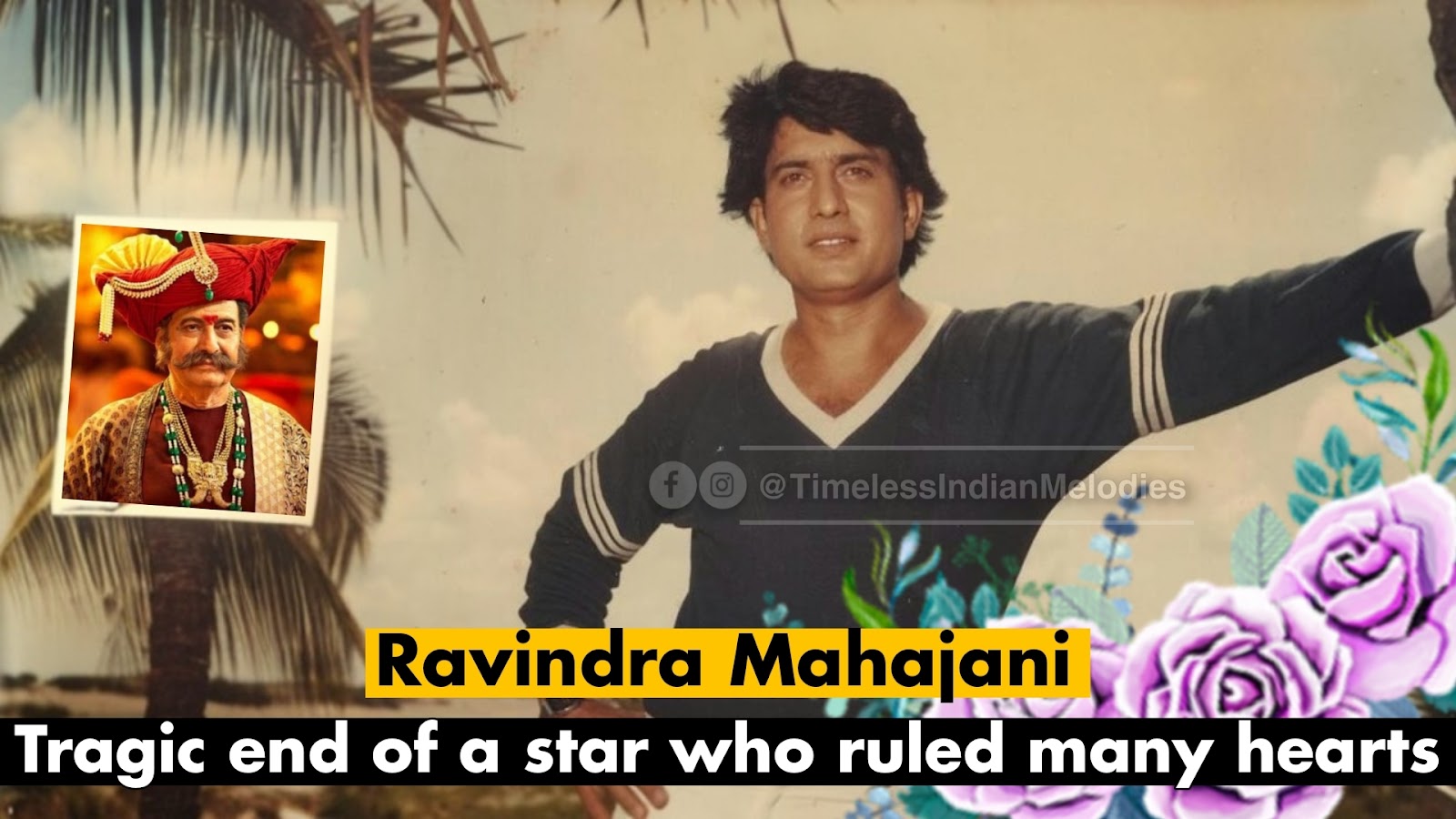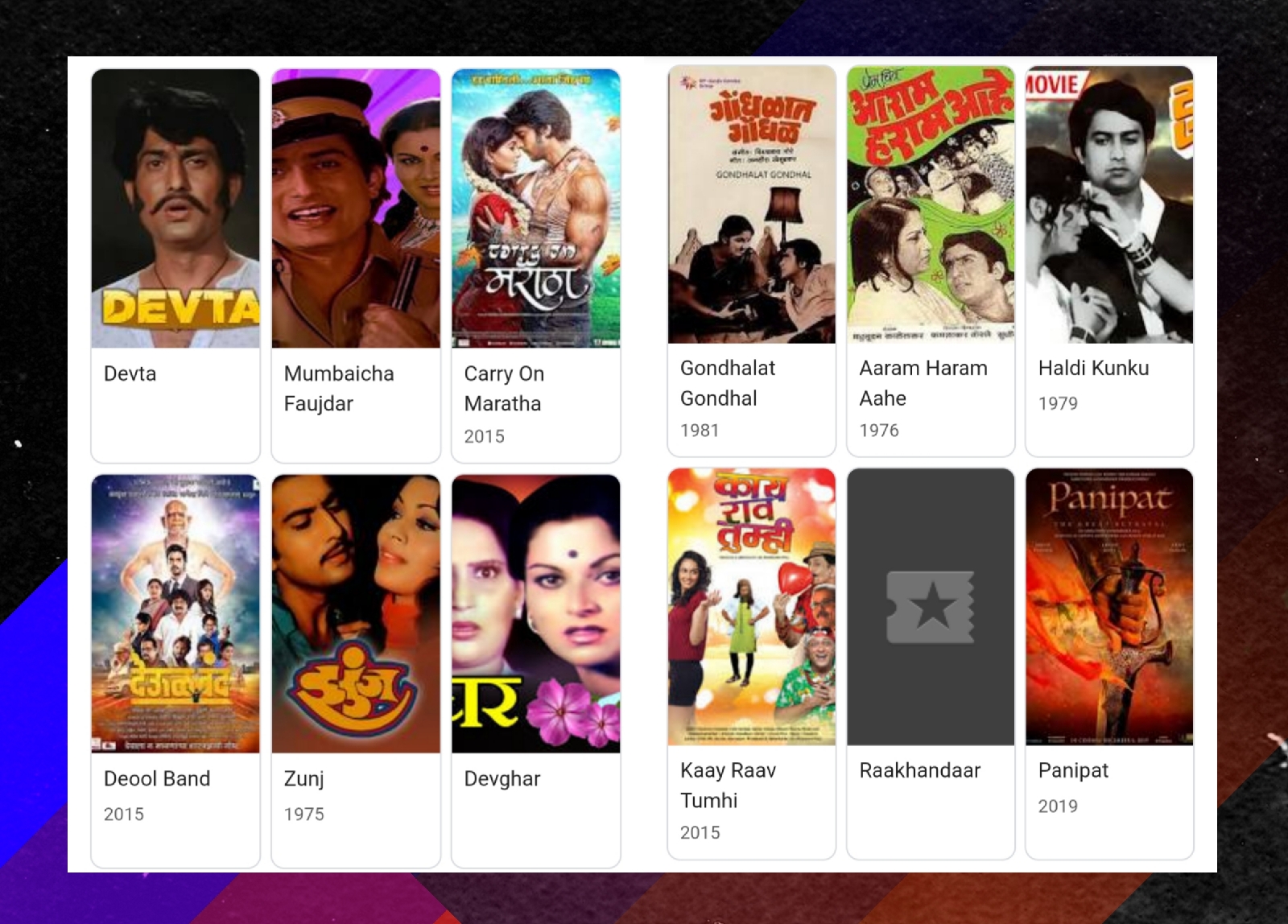The weekend was just beginning and early morning while still on my bed got a WhatsApp message which was very tragic and shocking to me and many others who got the news which said that Marathi superstar Ravindra Mahajani found dead in his apartment.
The name needed no introduction to the Marathi audiences while die hard lovers of Hindi cinema will still remember him for acting in few Hindi films. What the audiences most remembered about Ravindra Mahajani rather than being a superstar is his personality as he was considered as the most and only handsome hero of Marathi cinema till date.
He was often referred as Vinod Khanna of Marathi films due to his resemblance with him.While his competitor Ashok Saraf also mentioned that he was one of the most handsome heroes ever produced by Marathi industry.
Ravindra Mahajani was born on 7th October 1949 in Belgaum in Karnataka. He had the charming personality of being a hero and hence decided to try his luck in films and came to Mumbai where he started hunting for work, drove a taxi for living and started doing plays on Marathi stage.
His dream acting debut came with the film Saath Hindustani (1969) which was also the debut of superstar Amitabh Bachchan. This film had him in a small role as a police inspector which went unnoticed But he continued his struggle on Marathi stage where he got noticed for his play Janta Ajanta and doors opened for him in the film industry with one of the biggest production houses V Shantaram films which gave us many classics in Hindi as well as Marathi. Kiran Shantaram son of V Shantaram was making his directional debut with Zunj (1975) and launched newcomers Ranjana and Ravindra Mahajani as lead pair. The film became a huge success and further the lead pair went on to work in many hit films together until the early 80s.
Ravindra Mahajani was riding high on success with his debut film and in the following year 1976 he gave one of the biggest hit of his career as Aaram Haram Haye as a Diwali gift to his fans co staring actress Roohi (wife of Laxmikanth Berde).The songs of the films also became chartbusters, Prem Vedi Radha, Jaishil Kuthe Muli Tu are still remembered even today.
Buy tasting success with his first two films Ravindra Mahajani soon became a star of 70s Marathi films and remained at the top until 1984 with competitor’s like Ashok Saraf, Dada Kondke, Kuldeep Pawar, Yeshwant Dutt & Arun Sarnaik.
He had back to back successful films like Lavani Zaali Ga Raagini (1976), Chandoba Chandba Bhaglas Ka (1979), Duniya Kari Salaam (1979), Haaldkunku (1979), Savli Premachi (1980), Choravar Mor (1980),Soon Maji Laxmi (1981), Ghondalat Ghondal (1981), Galli Te Dilli (1982), Thorli Zau (1982), Devta (1983), Hey Daan Kun Kunvache (1983) and many more .
Some of his biggest hits released then was Laxmichi Paule (1982) which had some chartbuster songs which are still heard by Marathi speaking audiences like Je Hote Have, Majya Punyaeeche Bal, Nath Tuje Mi Jhaale and many more. Raakhandar released in the same year as Laxmichi Paule was one of his films which was very much ahead of its time which is quite bold for Marathi audiences even today but story line of the film had punching lines with its bold theme. Above all his most memorable films remains Mumbaicha Fauzdar (1984) this was one of his last successful Marathi film as a lead hero after which he decided to give up on lead roles.
Between 1975 to 1984, Ravindra Mahajani worked with top male actors as mentioned above but one actor which was his co-star in one film would a surprise to many it was our little master cricketer Sunil Gavaskar in the film Savli Premachi. While his female costars were Priya Tendulkar, Jayshree Gadkar, Roohi, Kamini Bhatia, Usha Naik, Usha Chavan, Reema Lagoo and above all Ranjana with whom he did most of his films and was considered as a hit pair. He also got a chance to share a screen space with legendry actress like Nanda in Lavani Zali ga Ragini.
Aftee making his debut in Saath Hindustani he never did a Hindi film for a longer period of time and returned back to Hindi cinema with Bahu Ho Toh Aisi (1982) which was during the peak of his career in Marathi films. He went on to do films like Yeh Preet Na Hogi Kam (1986), Nain Mile Chain Kahan (1986), Kanoon Kanoon Hai (1987) and Wahem (1987), which all went without a trace. Goonj (1989) is considered one of his memorable roles in Hindi films where he played the main antagonist Dennis Pereira.
At one point of time director N Chandra approached Ravindra Mahajani to play lead in Ankush (1986). But it couldn’t work out due to pricing issues. The character of Nana Patekar who later played the lead in the film was named Ravindra after the actor.
After 1984 he didn’t taste more success as a hero as he was looking to switch his career into real estate in Pune. But went to do handful of films in supporting roles like Maherchi Manse (1984), Sarja (1987), Kalat Nakalat, Jeeva Sakha (1992) and Jagavegli Paij (1992).
During this time he decided to try his luck at direction and directed the film Julum (1990) with himself in double role. The same year he had his final film released as a lead hero Dhadaka which was started in mid 80s and also saw Kapoor brothers Raj Kapoor and Shammi Kapoor in their only Marathi film in the song Abdullah Mama.This film was delayed for a long and this became his last film in a lead role.
In the early 90s Ravindra Mahajani quit acting for a longer period of time and concentrated on his real estate business. But a time came in his life when his business suffered a lot in early 2000 where his properties were also sealed. It was during this time his son Gashmeer Mahajani who was in his teens took up the responsibility of the family and started a dance studio GRM Dance Academy and bailed the family out of crisis.
In 2002 Ravindra Mahajani decided to get back to direction and made the film Satte Saathi Kahi Hi which was debut of Subodh Bhave he was also the producer of the film. After being away from acting for many years he made a comeback with Rangiberangi (2009) and went on to do films like Aajoba Vayat Aale (2011) where he almost played the title role, Sukhanya (2012) and Kaay Raav Tumhi (2015).
When his son Gashmeer Mahajani decided to be an actor he went on to support him fully in promoting him and also did cameo in his debut film Carry on Maratha (2015) and second film Deool Band in the same year. His son today is a big name in Marathi industry and also worked in Hindi films and television.
After almost 30 years Ravindra Mahajani made a comeback to Hindi film with Ashutosh Gowariker's Panipat where he played the role of Malharrao Holkar also costarring his son alongside him. This remains his final release after this film there wasn’t much heard about him until the faithful morning of 14th July 2023.
On Friday afternoon a society in Pune's rural area Talegaon Dabhade complained to police about foul smell coming out of a flat when the cops broke the door they found that person living in the flat had passed away almost two to three days back and identified him has Ravindra Mahajani. The neighbors only came to know after his death that it was the superstar who was living in the flat as he would not interact much with anybody and no one would come to meet him.
it was later discovered that he was living away from his family for some time and shifted to this rented apartment only eight months back as his health wasn’t doing well and he wanted to stay at peaceful place filled with nature.
Thou life became cruel to Ravindra Mahajani and he had a tragic end he will always be remembered as the most handsome hero Marathi cinema ever produced.
(Writer of this article: Alex Almeida is a passionate Hindi cinema buff with a deep love for the art of storytelling.)



Comments
Post a Comment